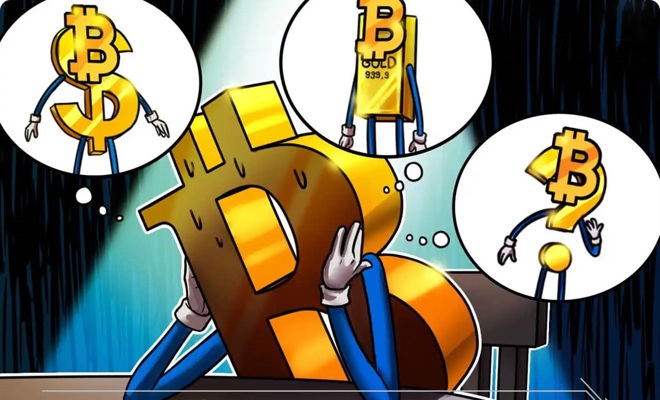
Why Bitcoin: A Viable Store of Value?
In a world filled with economic uncertainty, inflation, and geopolitical tension, many people are looking for reliable ways to protect their wealth. While traditional stores of value like gold and real estate have served this role for centuries, a new digital contender has emerged in recent years — Bitcoin. But what makes Bitcoin a viable option? And can it really compete with the legacy of gold? Let’s explore the key reasons Bitcoin is gaining attention as a modern store of value. 🔍
🔒 Scarcity and Limited Supply
One of Bitcoin’s defining strengths lies in its built-in scarcity. Unlike traditional fiat currencies—which central banks can print without limit—Bitcoin’s total supply is capped at just 21 million coins. This limit is hardcoded into its protocol and cannot be altered, ensuring Bitcoin’s rarity remains intact forever.
This finite supply gives Bitcoin qualities similar to precious metals like gold, which are naturally rare and require effort to extract. As more people around the world become interested in owning Bitcoin, its demand grows while its supply remains fixed. According to fundamental economic principles, this scarcity-driven demand can contribute to an increase in Bitcoin’s value over time. 🌟
🏛️ Decentralization and Security
Bitcoin stands apart from traditional currencies because it operates on a decentralized network. No single government, corporation, or financial institution controls it. Instead, it runs on a global peer-to-peer network secured by blockchain technology.
Every Bitcoin transaction is verified by thousands of independent nodes worldwide, creating a transparent and tamper-resistant ledger. The use of advanced cryptography ensures that Bitcoin remains secure against hacking, fraud, and censorship, making it a trustworthy digital asset in a world where financial control is often centralized. 🛡️
🌍 Durability, Portability, and Divisibility
As a purely digital asset, Bitcoin offers unique advantages over physical money. It cannot be destroyed by physical damage, lost, or stolen in the traditional sense. Bitcoin can be securely stored in digital wallets, which can be backed up with seed phrases and stored offline in cold storage for extra safety.
Bitcoin is also extremely portable — you can carry millions of dollars worth of Bitcoin on a tiny USB device or even remember your wallet’s recovery phrase in your mind. Furthermore, Bitcoin is highly divisible; each Bitcoin can be divided into 100 million smaller units called “satoshis,” allowing for microtransactions and accessibility for users at all income levels. 💳
🚀 Growing Adoption and Institutional Interest
In recent years, Bitcoin’s adoption has accelerated significantly. It is no longer just an asset for tech enthusiasts or retail investors. Major corporations such as Tesla, MicroStrategy, and PayPal have embraced Bitcoin, either by holding it on their balance sheets or integrating it into their payment systems.
Bitcoin’s ecosystem continues to expand with the proliferation of Bitcoin ATMs, payment processors, and merchants worldwide accepting it as a legitimate method of payment. This growing infrastructure enhances Bitcoin’s liquidity and credibility, two crucial elements for any asset aspiring to be a long-term store of value. 🌐
⚠️ Volatility and Regulatory Risks
Despite its many strengths, Bitcoin is not without risks. One of the most notable challenges is its price volatility. Bitcoin’s value can fluctuate dramatically in short periods, which may deter investors seeking stable returns or companies needing predictable currency valuation.
Additionally, the regulatory environment surrounding Bitcoin and cryptocurrencies is still evolving globally. Governments may introduce new laws, tax policies, or restrictions that could affect Bitcoin’s usability, trading, and legal standing. Staying informed about regulatory developments is crucial for anyone involved in the Bitcoin ecosystem. 📉📈
🧠 Conclusion: A Digital Hedge for the Modern World
Bitcoin is far more than a passing trend — it represents a groundbreaking innovation in how we store and transfer value. Thanks to its limited supply, decentralized design, robust security, portability, and expanding adoption, Bitcoin has emerged as a compelling digital alternative to traditional stores of value like gold.
While it carries inherent risks such as price volatility and uncertain regulation, many investors view Bitcoin as a modern hedge against inflation, currency debasement, and economic instability. As the global financial landscape continues to shift towards digital solutions, Bitcoin’s role as a store of value and financial safe haven is poised to strengthen even further. 🚀🔮